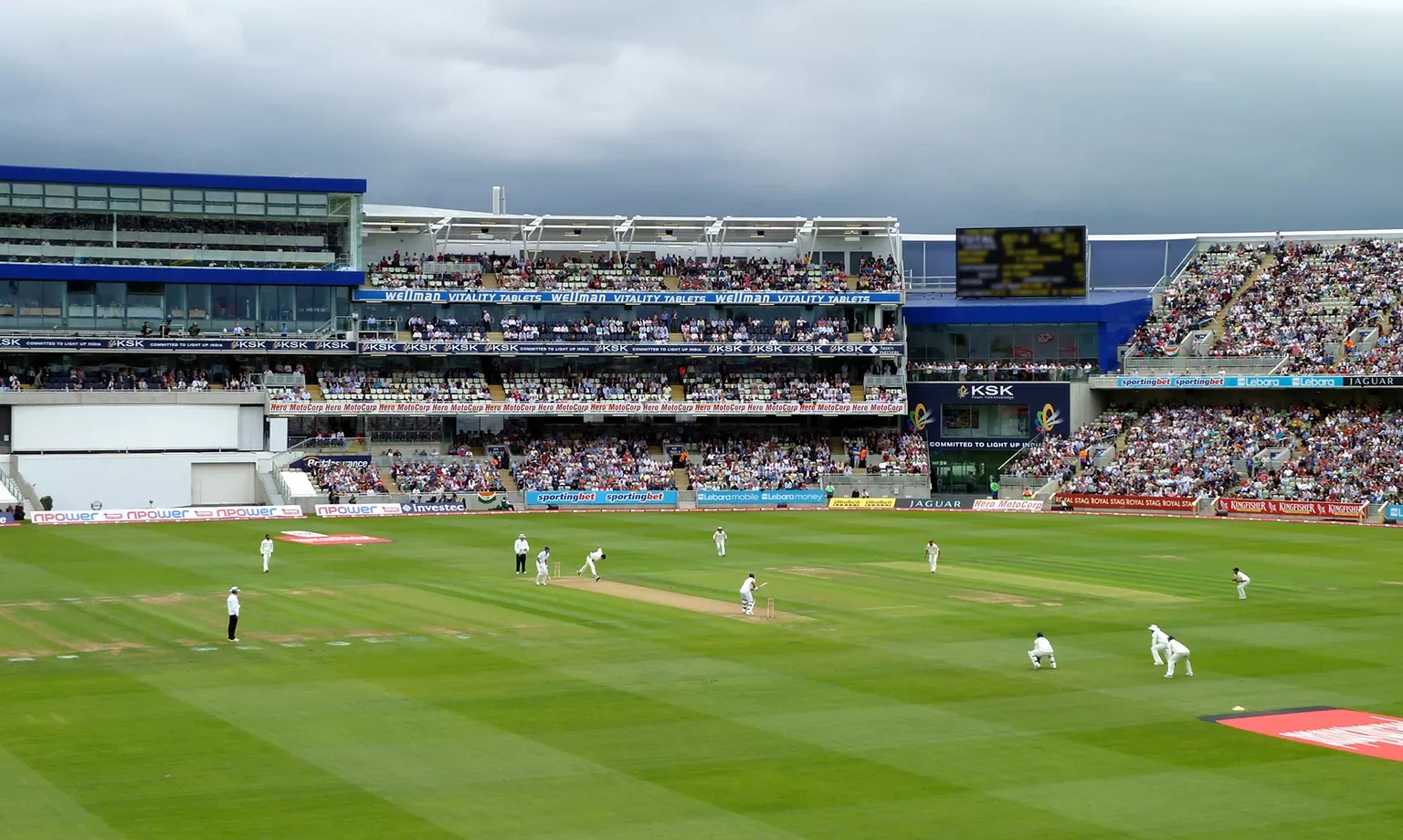Edgbaston Stadium recently staged the first sustainable international cricket match, with England taking on New Zealand. Labelled as the Go Green Game, the first eco-friendly fixture of its kind saw a focus on cutting emissions across all scopes of the ground’s footprint.
CRICKET GOES GREEN
Sport, like every other industry and event, must embrace and seek out new methods to transform into a more sustainable and environmentally friendly phenomenon.
To the oblivious observer, the third T20 International match between England and New Zealand, held at Birmingham’s Edgbaston stadium, was just another glorious day to watch the world’s elite cricket stars, drink copious amounts of beer, and soak up the dying embers of the Great British summer.
But for Edgbaston, and for English cricket, this was a first step into an exciting future of environmentally friendly possibilities, that is sparkling with sustainable potential.
The Go Green Game, the first of its kind in the UK, was held on Sunday 3rd September, with Edgbaston’s impressive 25,000-seater stadium running exclusively off wind, hydro, and solar power – something that will continue for the rest of September.
Elsewhere, the four and six cards which were handed out to the fans and have been waved by cricket crowds for more than two decades in the shortened format of the game were produced with ‘seed paper’ which, when later planted at home, will blossom into wildflowers.
No red meat was served in the hospitality areas during the Go Green Game, spectators were encouraged to use the free water refill stations around the stadium, and the England and Wales Cricket Board’s (ECB) match programme was made from 100 percent recycled paper.
Additionally, the lawnmowers and roller used by the grounds staff to prepare the playing surface were swapped out for electric alternatives.
Improved recycling has further reduced Edgbaston’s waste by a third, while hundreds of low-energy LED lights have also been installed across the ground. For this unique occasion, 95 percent of matchday food was prepared on-site to cut packaging waste, and the continued use of reusable e-cups has prevented countless single-use plastic alternatives from being needlessly wasted. Unsuspecting spectators’ food was even wrapped in sustainable packaging lined with seaweed.
TACKLING THE EMISSIONS MISSION
What made this day truly unique is that every watt of electricity used, every pint of lager poured, and every cheeseburger made will eventually be calculated into a report that rates the day’s carbon footprint.
Data will be collated on everything from the number of meals and drinks served to floodlight usage, water consumption, and every spectator’s method of transport to the stadium.
A trial for the T20 Finals Day at Edgbaston last year found that a staggering 79 percent of the event’s total emissions were caused by spectator and staff travel.
As a direct response to these findings, free shuttle buses were organised this year and car parks at the ground were closed. As well as this, more volunteers were positioned on walking and cycling routes to direct people to the ground, and more cycle racks were assembled alongside improved signage from the city centre.
“We want to be known for being a sustainable venue,” Lydia Carrington, Edgbaston’s first Sustainability Manager commented.
“We want people to think that when they come here, they are making a positive impact, despite the size of the event.”
TIME FOR CHANGE
The foreboding, omnipresent threat of climate change is one of sport’s uncomfortable truths.
Many detailed scientific reports into its impact on sports have found that cricket will be the hardest hit of all those using a pitch or field.
Around 40 percent of cricket grounds in England and Wales, with thousands more in the recreational and semi-professional game, are at risk of the devastating impacts of a changing climate, whether through increased droughts or flooding.
Furthermore, cricket is hardly an innocent party when it comes to its environmental footprint. England’s nearest opponents in the ICC World Test Championship, for example, are Pakistan – an eight-hour flight away.
“Cricket is one of the sports most at risk from climate change, so it’s right we’re leading the charge to change attitudes,” Edgbaston’s Operations Director, Claire Daniel explained.
“Our Go Green Game will showcase all the positive changes we’ve made to become a more sustainable venue,” she added.
The venue’s Edgbaston 4 Sustainability pledge is underpinned by a commitment to become a carbon net zero business by 2030.
Overall, the aim of the Go Green Game was not only to reduce emissions but also to raise awareness of the influence the sporting and event industry can have on sustainability and climate change, and it will hopefully act as the first stepping stone in a larger plan to achieve that goal.



















